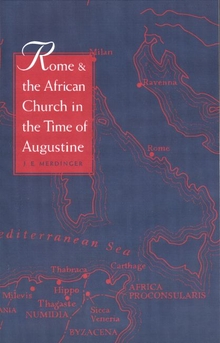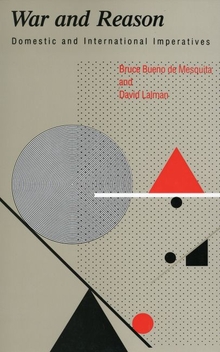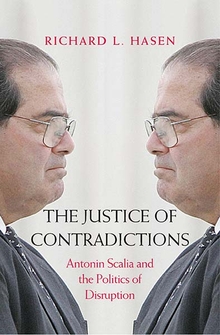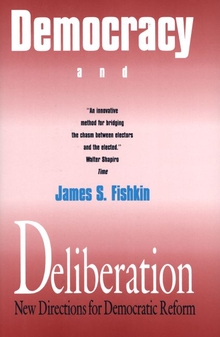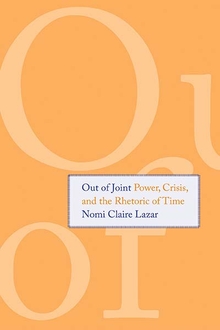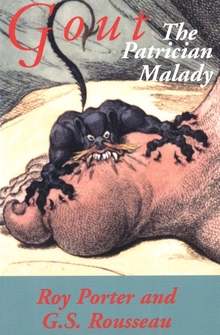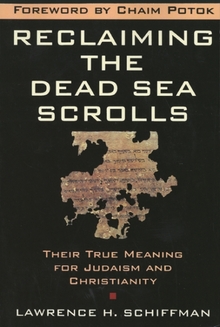Rome and the African Church in the Time of Augustine
WARNING
You are viewing an older version of the Yalebooks website. Please visit out new website with more updated information and a better user experience: https://www.yalebooks.com
J. E. Merdinger
Merdinger begins by tracing the historic links between the African church and Rome through the writings of some of its most important thinkers—Tertullian, Cyprian, and Optatus. The author then provides a lively account of actual fourth- and fifth-century court cases that arose in Africa but were adjudicated by Rome, including the notorious Apiarius affair and one case that was completely unknown before the newly discovered letters of Augustine were first published in 1981. By examining cases chronologically, Merdinger uncovers evolving patterns of authority and shows that the Africans increasingly turned to Rome as the final court of appeal for disciplinary matters. In the midst of these legal maelstroms, Merdinger says, the Africans' true feelings toward papal jurisdiction emerged.
"This book makes a significant and welcome contribution to the history of early Christianity and late antiquity, and it does so in a clear and engaging style that renders canon law and ecclesiastical court cases accessible, interesting, and even dramatic. . . . Merdinger tells a good story, one that no doubt will replace previous accounts of these events because of its new evidence and its freedom from religious polemics."—David Brakke, American Historical Review
"[Merdinger] treats us to helpful and critical discussions of the dramatic cases which define our understanding of the African appeals process from a political point of view. . . . [She] has made these questions accessible to a broader audience, with a more up-to-date collection of evidence, than any previous single work in the field."—Jeremy P.H. Williams, Augustinian Studies
"Merdinger's book achieves the seemingly impossible task of making the subject not only of wide general interest but actually a gripping read: the excitement of the cases which illustrate her central thesis often read like a very good historical novel. . . . Her gift for telling a good story holds together a complicated and often protracted plot in an engaging way: characters breathe, emotions are stirred, circumstantial details beguile, complexity lends richness rather than confusion. This is history at its best."—Carol Harrison, Church Times
"Dr. Merdinger's study is well executed and has many corrections to previous work."—Henry Chadwick, History Today
"Merdinger has written a long needed book, the capstone of painstaking, research, careful analysis of the evidence, balanced judgment, and graceful expository prose."—Thomas M. Finn, Journal of Church and State
"A readable and intelligent introduction to the issues. . . . A valuable contribution to their clarification."—Eugene TeSelle, Journal of the American Academy of Religion
"Merdinger’s monograph provides a fresh portrait of this intricate relationship through analysis of African conciliar canons and legal appeals from Carthage to Rome in Augustine’s time."—Paul M. Blowers, Religious Studies Review
"Merdinger's argumentation seems to this reviewer entirely exemplary in logic, precision, and density of evidence citation and in academic courtesy of a high order. This is an attractive book."—Jeremy DuQuesnay Adams, Speculum—A Journal of Medieval Studies
"This thoughtful work offers an adroit reading of the canons of the period, and of other sources, to reveal a relationship between the Roman and African churches which was sometimes strained but never broken. Her clear style makes Merdinger's logic easy to follow, and her arguments are compelling."—J. Kevin Coyle, Theological Studies
"A tour de force. Engagingly readable, full of lively details, it provides both an accessible introduction to the development of papal and Episcopal authority in the West and a challenging new reading of the evidence for the initiated scholar. Merdinger's use of the recently published 'Divjak letters' of St. Augustine to re-interpret the relations of the Roman and North African Churches in the early fifth century is particularly exciting. Clearly this is the fullest and most sophisticated treatment available in English of a crucial period in the growth of Church life and structures."—Brian E. Daley, S. J.
Publication Date: January 11, 1997

